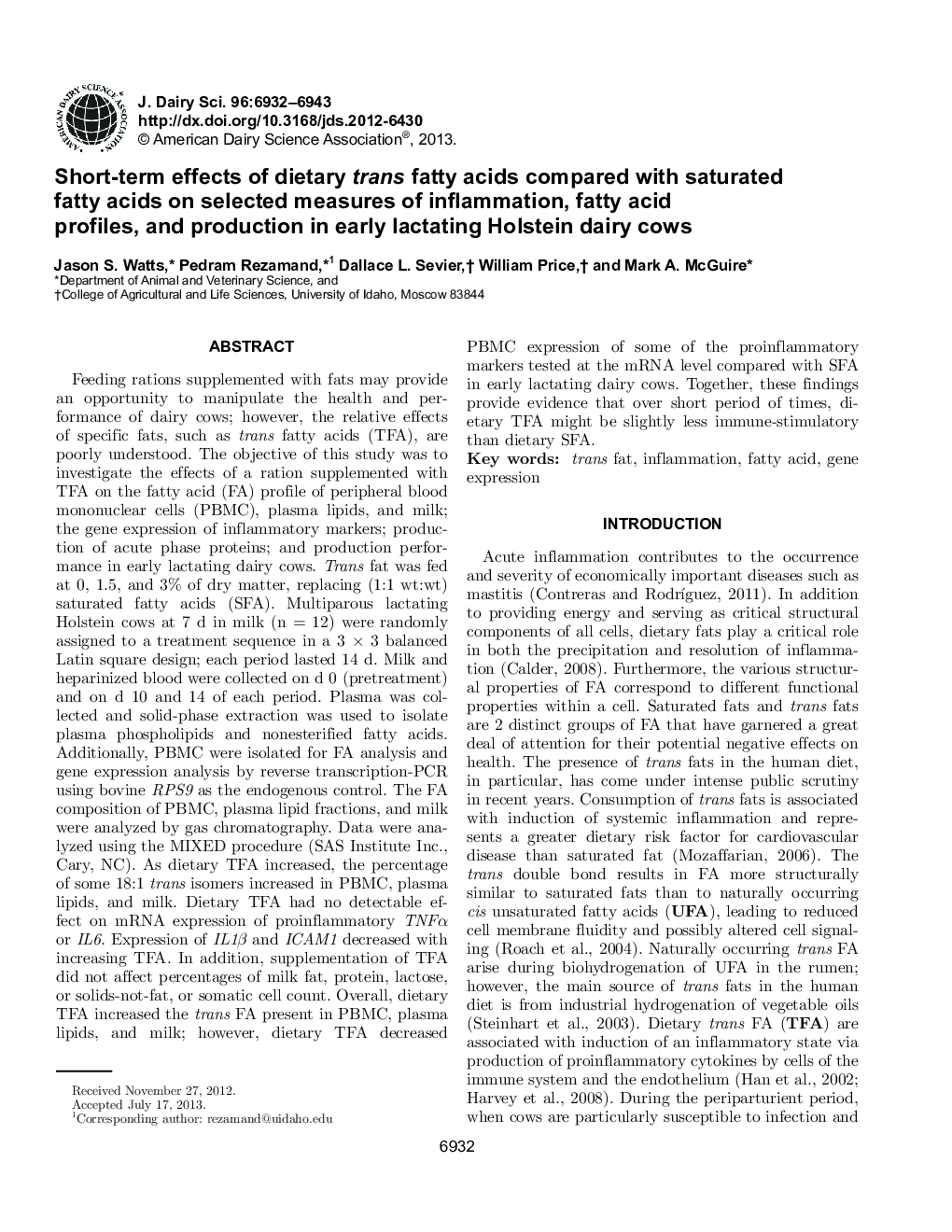| Article ID | Journal | Published Year | Pages | File Type |
|---|---|---|---|---|
| 10975004 | Journal of Dairy Science | 2013 | 12 Pages |
Abstract
Feeding rations supplemented with fats may provide an opportunity to manipulate the health and performance of dairy cows; however, the relative effects of specific fats, such as trans fatty acids (TFA), are poorly understood. The objective of this study was to investigate the effects of a ration supplemented with TFA on the fatty acid (FA) profile of peripheral blood mononuclear cells (PBMC), plasma lipids, and milk; the gene expression of inflammatory markers; production of acute phase proteins; and production performance in early lactating dairy cows. Trans fat was fed at 0, 1.5, and 3% of dry matter, replacing (1:1 wt:wt) saturated fatty acids (SFA). Multiparous lactating Holstein cows at 7 d in milk (n = 12) were randomly assigned to a treatment sequence in a 3 Ã 3 balanced Latin square design; each period lasted 14 d. Milk and heparinized blood were collected on d 0 (pretreatment) and on d 10 and 14 of each period. Plasma was collected and solid-phase extraction was used to isolate plasma phospholipids and nonesterified fatty acids. Additionally, PBMC were isolated for FA analysis and gene expression analysis by reverse transcription-PCR using bovine RPS9 as the endogenous control. The FA composition of PBMC, plasma lipid fractions, and milk were analyzed by gas chromatography. Data were analyzed using the MIXED procedure (SAS Institute Inc., Cary, NC). As dietary TFA increased, the percentage of some 18:1 trans isomers increased in PBMC, plasma lipids, and milk. Dietary TFA had no detectable effect on mRNA expression of proinflammatory TNFα or IL6. Expression of IL1β and ICAM1 decreased with increasing TFA. In addition, supplementation of TFA did not affect percentages of milk fat, protein, lactose, or solids-not-fat, or somatic cell count. Overall, dietary TFA increased the trans FA present in PBMC, plasma lipids, and milk; however, dietary TFA decreased PBMC expression of some of the proinflammatory markers tested at the mRNA level compared with SFA in early lactating dairy cows. Together, these findings provide evidence that over short period of times, dietary TFA might be slightly less immune-stimulatory than dietary SFA.
Related Topics
Life Sciences
Agricultural and Biological Sciences
Animal Science and Zoology
Authors
Jason S. Watts, Pedram Rezamand, Dallace L. Sevier, William Price, Mark A. McGuire,
